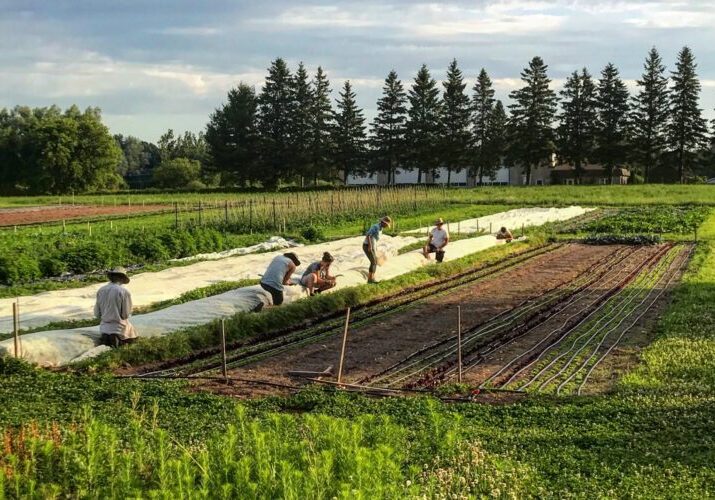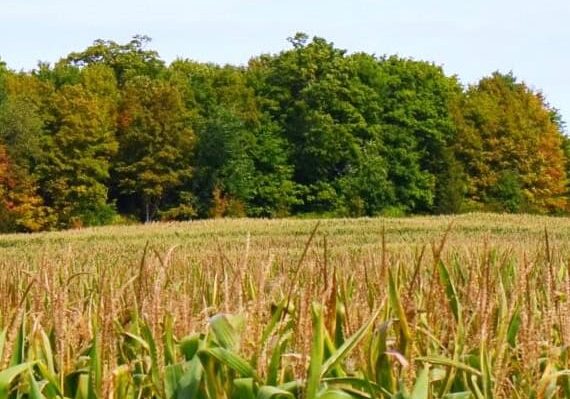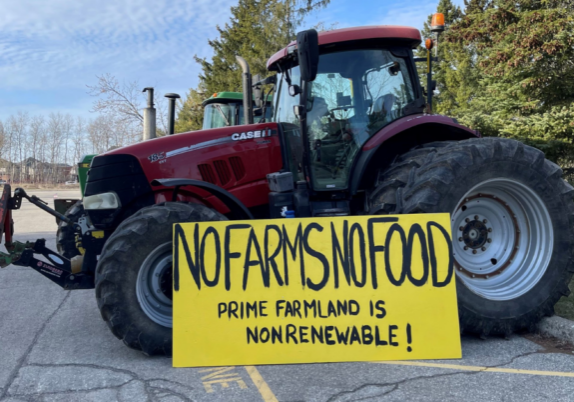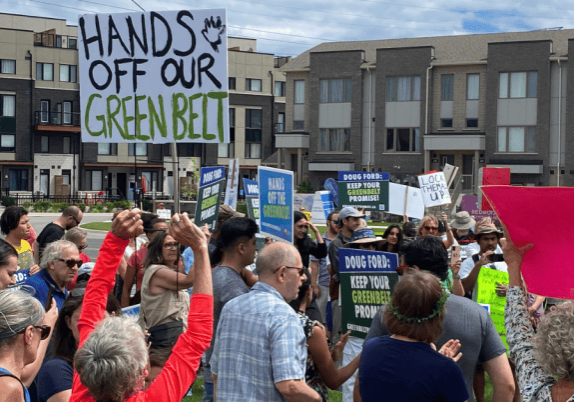The National Farmers Union – Ontario Digs Senate Recommendations to Publicly-fund Farmer-Informed Protection of Agricultural Soils

Treaty lands and territory of the Mississaugas of the Credit (Guelph, ON) (September 20, 2024) –
“There are only two things in farming you can never get back: time and soil,” shared Stuart Oke, Ontario farmer and past National Farmers Union (NFU) Youth President, to the House of Commons’ Senate Committee on Agriculture and Forestry in February 2024.
After listening to over 150 witnesses and reviewing almost 75 written briefs from farmers and agricultural and forestry experts, the Senate Committee—led by Senator Robert Black—released their urgent report, Critical Ground: Why Soil is Essential to Canada’s Economic, Environmental, Human, and Social Health this spring.
The Senate Committee heard how non-agricultural development, economic pressures on farmers, corporate concentration and non-farmer ownership of farmland, and certain land management and land-use planning and practices are threatening soil health on the remaining 6.7% of all Canadian land that is suitable for agriculture in this country.
The report calls upon the Government of Canada “to designate soil as a strategic national asset” in order to conserve and protect a “valuable natural resource” and ensure that soil health is recognized as a “national policy priority.”
“We applaud Senator Black and the committee for raising awareness of the myriad threats to our soils that are eroding food security for Canadians,” says Max Hansgen, president of the National Farmers Union – Ontario (NFU-O). “We urge all levels of government to heed the report’s dire warnings and adopt and legislate some of its key 25 recommendations before the year is out.”
The NFU-O agrees with the report’s recommendations that encourage collaboration and consensus-building among farmers, Indigenous, municipal, provincial, and federal governments, and all stakeholders who are committed to protecting and conserving our finite and endangered soils.
We also support the recommendations that stress public funding and resources to advance soil-related research, incentives, and initiatives, and in the promotion of “soil health, human health, and a better future.” The elimination of provincial extension services in Ontario and elsewhere has led to a reliance on the advice of agronomists employed by fertilizer and pesticide companies which has had an adverse effect on soil quality. A recent NFU-O study on nutrient management on Ontario farms confirms how the dominance of corporate fertilizer interests and the lack of publicly-funded agronomists is negatively impacting the ability of farmers to adopt best practices to improve soil and water health. The Senate report’s recommendation for the Government of Canada to “collaborate with the provinces and territories to enhance long-term funding for soil extension services” is crucial to achieve the protection and health of our agricultural lands.
Similarly, we wish to emphasize the invaluable recommendation to “reinstate the Prairie Farm Rehabilitation Administration (PFRA).” The NFU Climate Committee advocates the PFRA be renamed the Canadian Farm Resilience Agency (CFRA) and expanded and updated to help farmers adapt to climate change, build resilience, and reduce emissions while maintaining liveable incomes.
The Senate’s recommendations that call for enhanced government funds—through tax credits, crop insurance or other financial mechanisms— to reward farmers who have already adopted proven ecological methods, fund peer-to-peer soil networks, and support the implementation of soil health best management practices among all farmers, ranchers, and growers is welcomed.
As the Ontario Government continues to push urban boundary expansions onto farmland and has watered down agricultural protections within the new Provincial Policy Statement (2024), we see the Senate’s recommendation to strengthen land use planning measures that directly preserve agricultural land from development at the municipal, provincial, and territorial level as a timely and critical intervention.
The Senate Committee heard from the Ontario Ministry of Agriculture, Food and Agribusiness (OMAFA) that rented farmland is “vulnerable to erosion, compaction, and decreasing soil organic matter levels.” An NFU witness confirmed that “40% of farmland in Canada is currently rented.” Yet, the report does not provide a recommendation to address the problem of farmland ownership on soil health. The NFU-O reiterates its call for legislation to prevent land grabbing by private investment funds and pension plans in order to ensure farmer ownership of farmland and a greater commitment to soil improvements.
We also encourage the Government of Canada to review its own landholdings—like the 6,700 acres of unprotected Pickering federal lands currently rented to cash-croppers—with an eye to placing these lands under permanent public protection and offered to new, young, and equity- seeking farmers under long-term lease opportunities, not unlike how the National Capital Commission manages the 5,400 hectares in the Capital Region—the largest publicly-owned greenbelt in the world. Creating larger swaths of public farmland has the potential to support the next generation of ecologically-minded farmers to improve soil health.
Finally, while the NFU-O agrees with the Senate’s finding that farmers can and should play a key role in maximizing soil carbon sequestration to mitigate the threats of climate change, we reject the recommendation to pursue “carbon markets” as the NFU believes carbon offset proposals are ineffectual, illegitimate, and potentially damaging. The NFU strongly opposes the idea that farmers’ positive actions be funded by the largest carbon emitters simply so they can delay, minimize, or avoid emission reductions. The Senate’s recommendations to create publicly-funded programs to support and incentivize soil enhancement and protection—not carbon-trading and corporate green-washing—offer a far superior climate mitigation strategy.
“The Senate Committee’s report digs deep into the very real risks of soil degradation as well as the promises of farmer-informed and publicly-funded interventions to improve soil health,” concludes Max Hansgen, NFU-O president. “Implementing some of its key recommendations will improve farmer livelihoods, food security, climate change mitigation, environmental protection, human health, and the sustainability of the entire agricultural sector.”
-30-
For more information:
Max Hansgen
President, National Farmers Union–Ontario
president@nfuontario.ca, 613-464-1251








